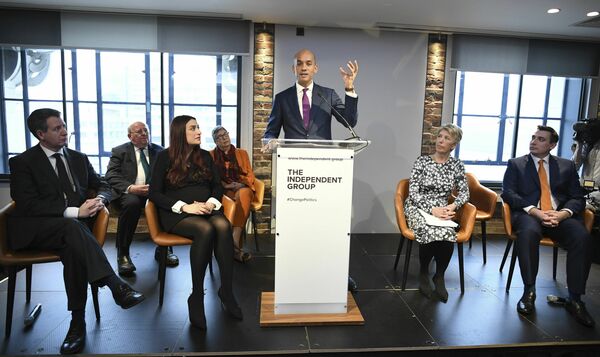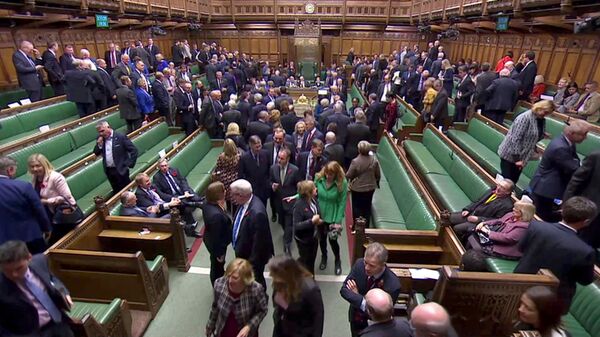An anticipated Conservative revolt over coronavirus laws is set to fall on deaf ears this week despite widespread criticism of new rules, namely curfews and fines, introduced by the UK Cabinet at really short notice and no consultations with MPs, The Guardian wrote, citing constitutional experts.
More than 50 Conservative MPs, and other cross-party parliamentarians, had been expected to rebel in the Commons on Wednesday, voting for an amendment to the so-called Coronavirus Act. The latter, passed without opposition in March giving ministers sweeping emergency powers to enforce lockdowns, requires a vote by MPs after six months to remain in force.
Like I say, we have been living in a dictatorship since March. And continue to do so
— Simon Dolan #KBF (@simondolan) September 28, 2020
Speaker Lindsay Hoyle 'WON'T allow vote on Tory rebel Covid amendment' https://t.co/7XmWnkxBPA
But on Monday night, constitutional experts said the Commons speaker, Lindsay Hoyle, would be unlikely to allow a vote on the amendment to allow more parliamentary scrutiny into the Cabinet's decisions on burning matters like healthcare crises. There were indications that ministers could make concessions, though, as Health Secretary Matt Hancock and Commons leader Jacob Rees-Mogg held a meeting with key Tory rebels including Steve Baker, an MP for Wycombe in Buckinghamshire.
No 10 Rises Against Amendment
Downing Street vehemently opposes the amendment tabled by senior backbencher Sir Graham Brady and so far backed by more than the 52 Tories, per Brady, arguing ministers need the ability to act fast especially in response to the looming second wave of the pandemic. However, as Labour made clear they will eagerly back the Brady initiative, it appeared set to defeat Boris Johnson's 80-seat majority.

Whatever the case, constitutional analysts assume that the peculiar circumstances of Wednesday's vote, which is not supposed to create new legislation, but table a question of whether or not to extend an existing law, means Hoyle would be unlikely to allow any amendments.
"The act clearly envisages the vote as a yes/no question", said Dr Hannah White, deputy director of the think tank Institute for Government, adding that this doesn't presuppose a "yes, but".
"Just on those grounds, what parliament intended with that bit of the Coronavirus Act, the speaker would probably be justified in saying: 'I'm not going to select an amendment to it'", White argued.
"It's now clear the Brady amendment [is] out of scope so will not be voted on", a government source reportedly told Sky News.
Parliament as 'Common Sense Filter'
Brady, who boasted of having a huge backing for the intiative, said he was still hopeful Hoyle would pick it on Wednesday. "It is obvious the House of Commons would like to debate on it and, given the clerks have said the amendment would be in scope, there is no reason why the speaker couldn't select it although it is entirely a matter for him to decide", he said.
Another Conservative backing the amendment, Isle of Wight MP Bob Seely, said that while he believed ministers were trying to keep COVID rules as simple as possible, parliament should be used as "a common sense filter".
Health Secretary Matt Hancock echoed the stance insisting the other day that he was "looking at further ways to ensure the House can be properly involved in the process in advance where possible", and hoped to hold talks with Brady soon.
However controversial the new measures were believed to be as they were being prepared, they took effect on Monday, with bars and restaurants imposed obligatory 10 p.m. curfew hours and fines slapped on those who refuse to quarantine or those obliged to do so under the upgraded test and track scheme. In particular, £1,000 fines were introduced for falsely reporting that someone must quarantine, and a £4,000 first-time fine for those deemed "reckless" as they get around the newly established quarantine and self-isolation rules.



